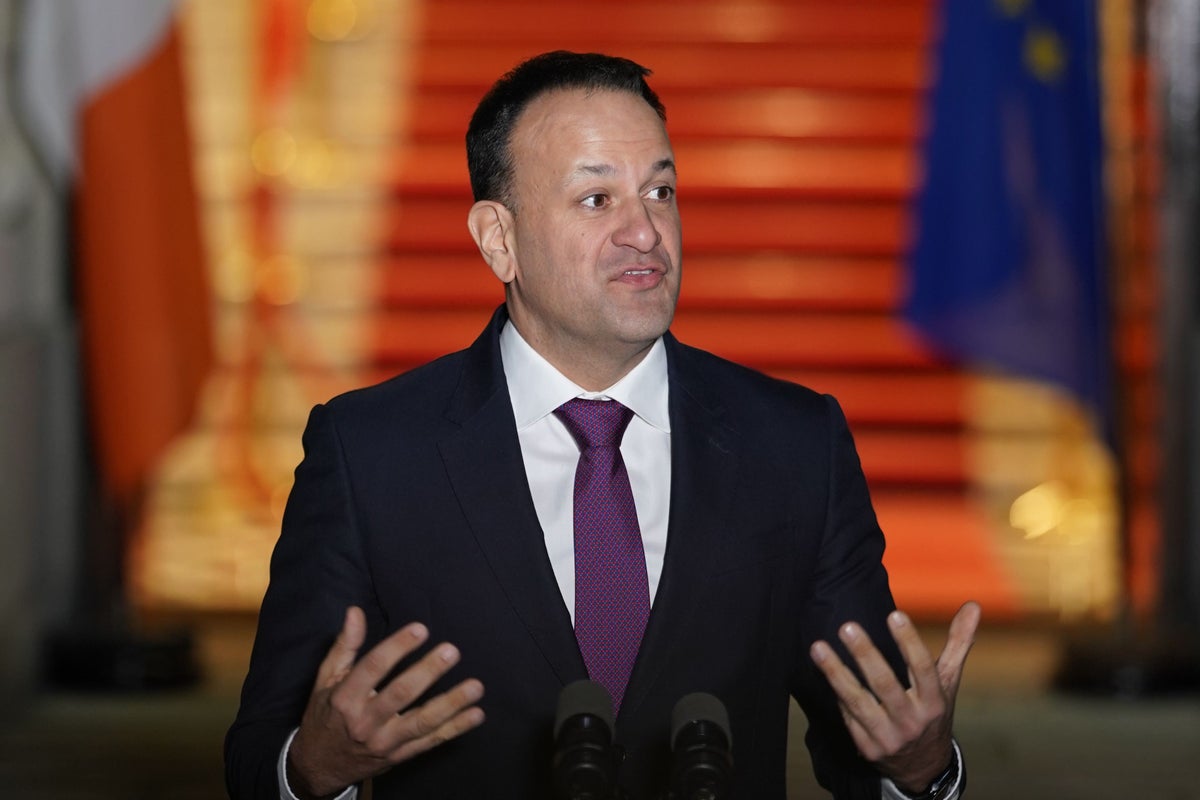
Irish premier Leo Varadkar has said the UK would be required to engage with the European Union to resolve any issues about proposed new EU laws being introduced in Northern Ireland.
Mr Varadkar made his comments a day after Northern Ireland Secretary Chris Heaton-Harris suggested the UK Government would be bound to veto any law if the Stormont brake element of the new Windsor Agreement was activated.
The framework will reduce the volume of Brexit red tape on the movement of GB goods bound for Northern Ireland that was created by the contentious Northern Ireland Protocol.
It also introduces a mechanism – the so-called Stormont brake – that enables a minority of Stormont MLAs to formally flag concerns about the imposition of new EU laws in Northern Ireland in a move that could ultimately lead to the UK Government vetoing their introduction.
The DUP, which collapsed powersharing in Northern Ireland in protest at the protocol, has yet to decide whether to back the Windsor Framework and return to devolution.
We see the Stormont brake as a red flag mechanism, a mechanism by which 30 assembly members from two parties or more can raise an issue— Leo Varadkar
Speaking to reporters in Dublin, Mr Varadkar was asked about Mr Heaton-Harris’s comments.
“I think what we’re going to have to see is the legislation that the British government introduces, and they’ve committed to consulting with the five main parties in Northern Ireland on that and also the Irish government,” said Mr Varadkar.
“We see the Stormont brake as a red flag mechanism, a mechanism by which 30 assembly members from two parties or more can raise an issue, an issue that we will then try to sort out between the EU and UK and that if things can’t be resolved we then go to international binding arbitrations, that’s how we would see it develop, that’s certainly how it’s written down in the legal text that was agreed between the EU and the UK.
“But of course the UK can bring in its own internal legislation, but they have committed to consulting with the parties on that.”
During a visit to Belfast earlier this week, Mr Heaton-Harris said further detail would be provided in the coming weeks on how the Stormont brake would work.
He said that technical talks on the mechanism had been held with the Stormont political parties.
Pressed on whether the Government was bound to veto a law if the brake was pulled, he said: “So the criteria really have to be fulfilled at the Assembly level, and yeah, we make an assessment, but in the piece of secondary legislation that we’ll be bringing forward, the Government will be bound, yeah.”
Some Stormont parties have expressed concern on whether his comments indicate that the brake will end up handing a powerful veto to a minority of MLAs.







